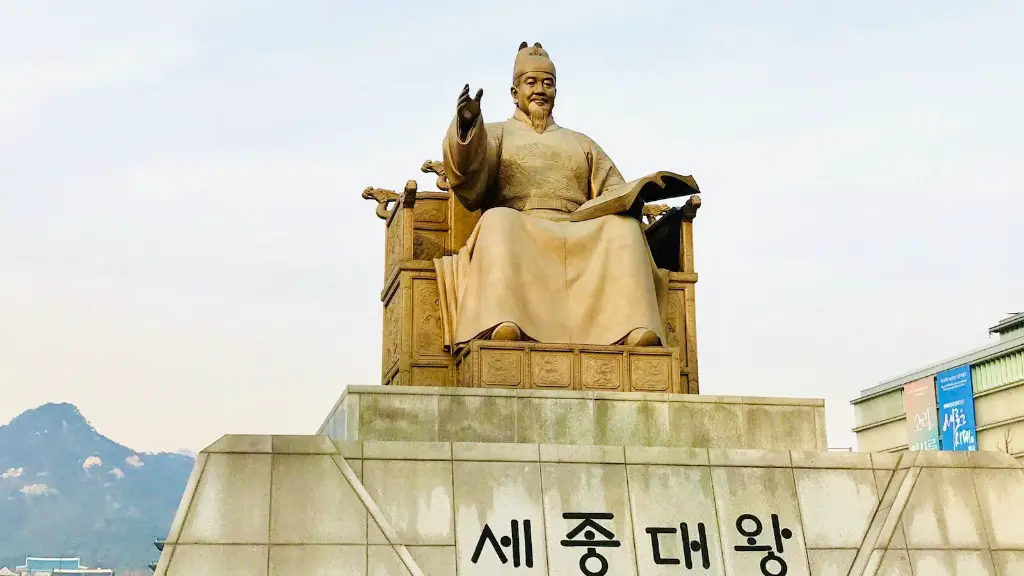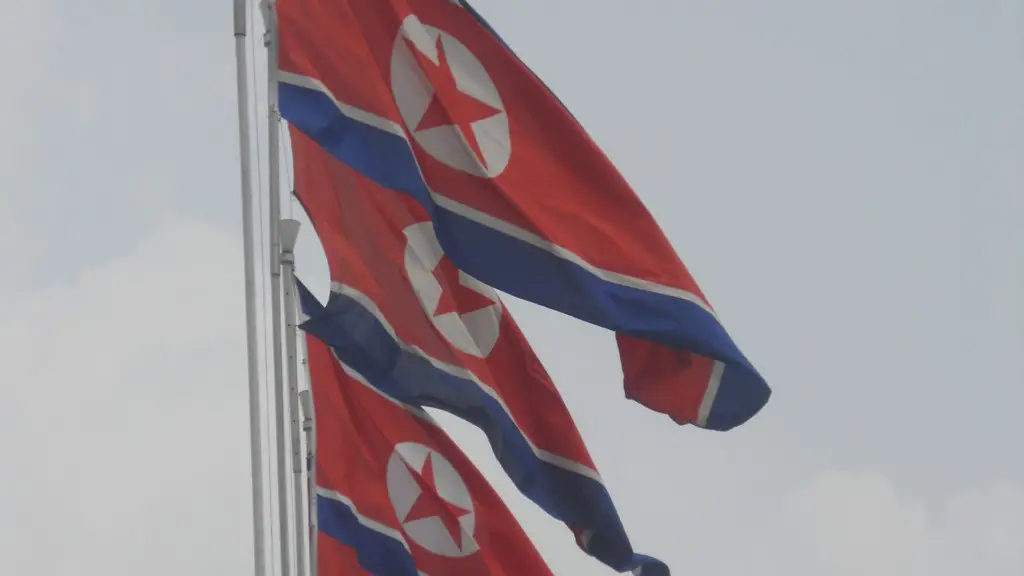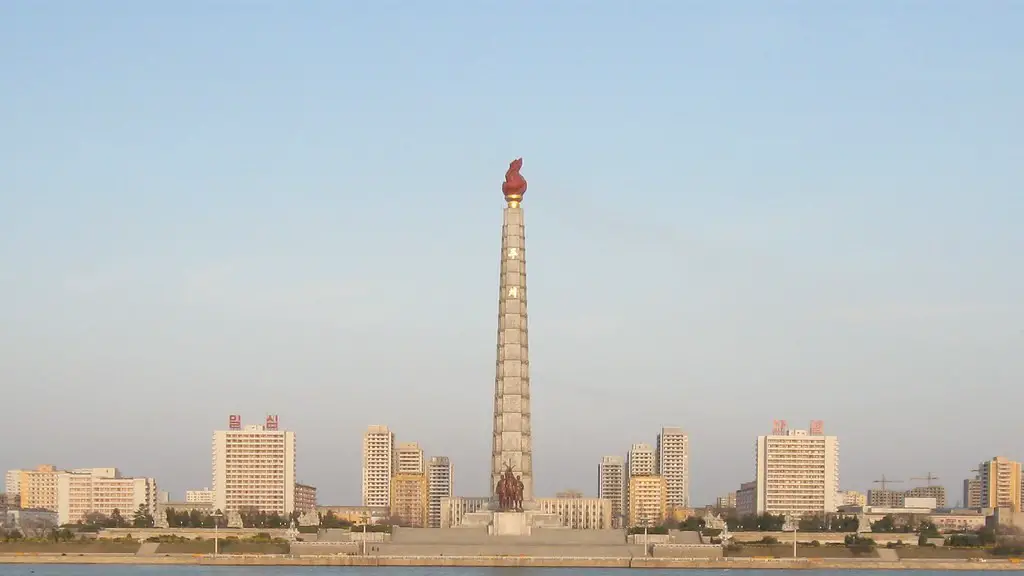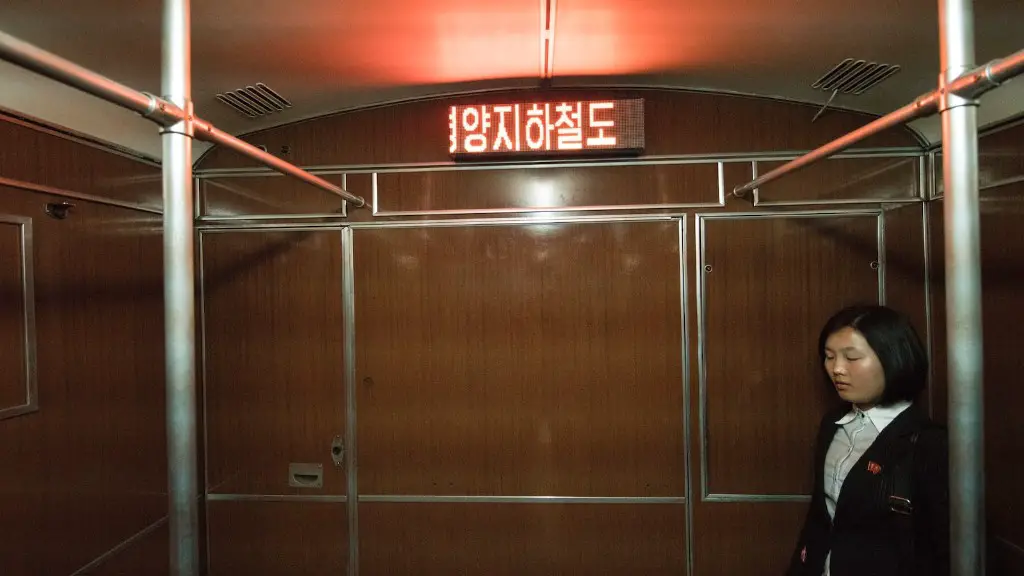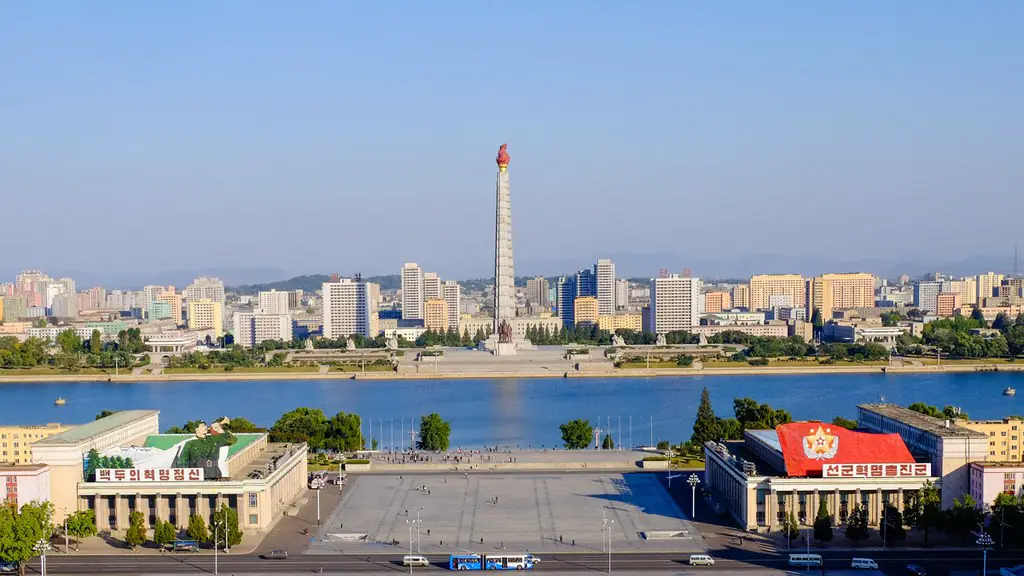Would North Korea nuke us? It’s a question many people, both in the United States and around the world, have been asking since the regime’s nuclear capabilities were revealed in 2006. The North Korean regime under Kim Jong-un has long held a belligerent stance toward its neighbors and the United States, suggesting they may be preparing to launch a pre-emptive nuclear strike on their enemies. Despite this, North Korea has not yet launched any nuclear weapons, and many experts believe it unlikely that they will do so in the future.
The North Korean nuclear program began in the early 1990s. Since then, the regime has conducted several nuclear tests, including its first confirmed nuclear test in 2006 and its most powerful one yet in 2017. In short, North Korea’s desire to expand its nuclear capabilities can be traced back to the early days of its regime. As the regime has grown in power, and the country has become further isolated from the rest of the world, its nuclear ambitions have only grown.
When it comes to the North Korean nuclear threat, experts disagree on how serious it is. Some argue that while the North Korean regime has been saber-rattling, they are unlikely to use their nuclear weapons in a war, as they know it would likely result in their own destruction. Others point out that North Korea has a history of aggression and unpredictability, making the prospect of a nuclear attack far more real.
Despite the disagreement among experts, there are certain facts that can’t be ignored. First and foremost, North Korea is a heavily militarized nation that has built up an extensive nuclear arsenal. Additionally, the regime’s isolation from the rest of the world has made any kind of dialogue or diplomacy with its neighbors difficult, something that could further inflame tensions. Finally, North Korea is led by a leadership that is unpredictable and has little regard for international norms or the safety of its own people.
When it comes to what action should be taken in light of North Korea’s nuclear capabilities, there is no easy answer. On one hand, military action should be avoided if at all possible, as it could likely result in a wider conflict and massive loss of life. On the other, the world cannot ignore the threat that North Korea poses to global security, and some kind of action must be taken to deter the regime from using its weapons.
Ultimately, the question of whether North Korea will nuke us or not cannot be answered definitively. Until the regime is willing to open up to the international community and negotiate in good faith, the threat of a nuclear attack from the North Korean regime is one that the world must take seriously.
Economic Sanctions
One of the most commonly proposed solutions to the North Korean nuclear threat is economic sanctions. These are an attempt to economically isolate the North Korean regime, depriving them of the resources they need to continue developing their nuclear weapons and punishing the regime for their belligerent behavior. Sanctions can take several forms, including trade embargoes, asset freezes, and limits on government funding.
Some experts argue that economic sanctions are an effective way to limit North Korea’s nuclear ambitions because they deny the regime access to much-needed resources. Others argue that economic sanctions will only further exacerbate the situation, as it is likely to push North Korea further into isolation and poverty, making them more desperate and thus more likely to lash out.
Ultimately, the effectiveness of economic sanctions is hard to judge. While they may prove useful in forcing the North Korean regime to the negotiating table, their effects on the everyday lives of its citizens is something that must be taken into consideration before any actions are taken.
Negotiations with North Korea
Despite its unwillingness to cooperate, some experts argue that the only way to truly diffuse the North Korean nuclear threat is through direct negotiations with the regime. This is a risky proposition, as North Korea has long refused to engage in political dialogue with the international community. However, some argue that the current diplomatic stalemate is unsustainable and that a dialogue, however fraught with difficulties, is the only way forward.
Negotiations with North Korea could take many forms, including providing aid and economic assistance in exchange for an agreement to denuclearize, or even direct talks with the regime itself. Ultimately, any negotiations will have to be entered into with caution, as the North Korean regime has a long history of reneging on its agreements and breaking its promises.
At the same time, it is hard to deny that direct negotiations are the only real way to bring an end to the North Korean nuclear threat. Until the regime is willing to open up to the international community and cooperate in good faith, then the only option left is for the world to stand together and make it clear that nuclear weapons are not an acceptable option.
Military Intervention
Although military intervention should only be used as a last resort, some argue that it is the only way to truly remove the North Korean nuclear threat. This could involve US military action, either on its own or in conjunction with allies, or a full-scale invasion of North Korea. Such an action would likely result in significant loss of life, as well as an immense logistical and financial burden.
At the same time, some argue that military action is the only way to truly remove the North Korean nuclear threat, as any diplomatic solution is likely to fail due to the regime’s unwillingness to negotiate. Furthermore, a military intervention could also serve to destabilize the regime, creating an opportunity for a future political transition from a nuclear power to a democracy.
Ultimately, military intervention should only be considered as a last resort, and any decision must take into account the potential costs and consequences. Furthermore, the international community must remain united in its commitment to non-proliferation and seek to find a diplomatic solution before resorting to military force.
U.S. Policy
The United States is one of the key players in dealing with the North Korean nuclear threat. The US has long held a position of strength and leadership in the international community, and its policies shape much of the world’s response to North Korea. The US has imposed its own economic sanctions on North Korea, and has also been active in diplomatic attempts to bring the regime to the negotiating table.
At the same time, the US has also vowed not to tolerate a North Korean-armed nuclear weapon and has signaled its willingness to use military force if necessary. The US has also sought to increase its diplomatic presence in East Asia, and has strengthened ties with regional allies such as South Korea and Japan as part of a collective effort to confront the North Korean threat.
When it comes to US policy on North Korea, the key is to maintain a united front with its allies and to show that it is willing to use all of its diplomatic and military might to deal with the threat. At the same time, the US should continue its efforts to engage the North Korean regime and provide incentives for it to denuclearize, as this is the only way to truly bring an end to the North Korean nuclear crisis.
The Human Cost
Whatever action is taken in response to the North Korean nuclear threat, its human cost must be taken into consideration. The North Korean regime has long been accused of human rights abuses and has a notorious reputation for suppressing dissent, and any military action taken by the international community will be felt acutely by its citizens. Similarly, economic sanctions have been shown to have a detrimental effect on the lives of ordinary North Koreans, something which must be taken into account.
Additionally, any military action taken by the US or its allies will likely result in significant loss of life on both sides of the conflict. Ultimately, the only way to truly protect innocent civilians from the potential fallout of a nuclear war is to work towards a diplomatic solution that respects the basic human rights of the North Korean people.
At the end of the day, the question of whether North Korea will nuke us remains unanswered. While some believe a nuclear attack is unlikely, the regime’s behaviour and nuclear capabilities cannot be ignored. The world must remain vigilant in its response to North Korea, and continue to seek a diplomatic solution to this ongoing crisis.
